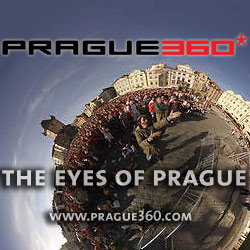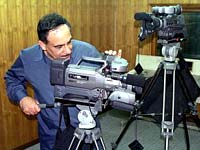The Director General of UNESCO launched its
Young Professionals Program for 2006 and has continued it for 2007. This is a very good initiative, providing a way to bring new ideas and new people into the organization.
The program is limited to only about 10 or 12 new appointments per year. That number might be appropriate for a test of the concept, but seems low for a continuing program. One would expect a competitive program recruiting young professionals to be a major source for UNESCO's staff of career officers.
The program is also limited to those from unrepresented and under-represented countries. This seems at first glance to be a reasonable policy, as a multinational organization should have international civil servants from many countries on its staff. The policy now provides an advantage for applicants from the United States and bars applicants from France, which no doubt pleases the U.S. State Department. But it also keeps out well qualified candidates from other developed nations, and encourages emigration of highly qualified people from countries desperately short of educational, scientific and cultural leaders -- the poor nations that are often under or unrepresented in UNESCO. It would be better to open the program to all nations, but to use the representation of the candidates nations as a criterion for selection among equally qualified candidates.
The program is limited to those who will be under the age of 30 at the start of their employment. The
World Bank Young Professionals Program accepts people 32 or younger, that is up to three years older than does UNESCO. Age 35 seems an even better standard.
Consider the ideal candidate for a career position in UNESCO's educational program. That person should probably have teaching experience, as well as experience in educational planning and administration. The person should speak several languages, and should have international experience as well as experience in his/her own country. Education to the doctoral level would seem necessary for those involved in higher education programs, and highly desirable for those in most other education programs.
If anything, the ideal candidate for UNESCO's cultural programs should have an even broader background, combining not only professional qualifications in a specific discipline, but broad understanding of culture and development, and professional abilities in the planning and administration of cultural programs.
Increasingly, UNESCO must be seen as a development organization, emphasizing services to poverty reduction and developing nations. Thus the young professionals entering the organization should be prepared as development experts as well as leaders in education or cultural programs. Thus a further training and professional background is to be desired.
Giving candidates up to 35 years to achieve all these qualifications does not appear at all unreasonable. While many administrative positions in UNESCO might be filled more than adequately with less well trained and experienced people, the core functions of the organization demand the highest levels of professionalism that are available. Those qualifications often are not achieved until people are in their mid 30's.
It seems very likely that by the time the new class of Young Professionals is ready to retire, the mandatory retirement age will be 65 or older. Thus a person entering a career in UNESCO at the age of 35 today might well expect to work for the organization for 30 years.
UNESCO needs and should demand exceptionally qualified people to lead its global efforts. Recruiting young professionals provides an opportunity for the organization to develop such leadership through its own ranks. However, the entrants to that process should be of the highest quality available. Selecting fewer than 20 candidates worldwide per year should allow the organization to set a very high standard indeed. Giving the candidates up to 35 years to qualify would allow more of the best young men and women time to meet such standards. JAD











 The Management of Social Transformations (MOST) Program, which is part of the Social and Human Sciences Sector (SHS) of UNESCO, is the first intergovernmental initiative launched within the United Nations System, and was created to “manage social transformation”.From 1994 to 2003, the program focused on international research. The most recent initiative (2004-2013) focuses primarily on the
The Management of Social Transformations (MOST) Program, which is part of the Social and Human Sciences Sector (SHS) of UNESCO, is the first intergovernmental initiative launched within the United Nations System, and was created to “manage social transformation”.From 1994 to 2003, the program focused on international research. The most recent initiative (2004-2013) focuses primarily on the 



